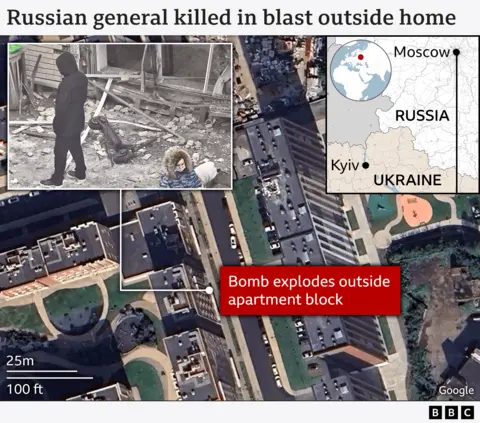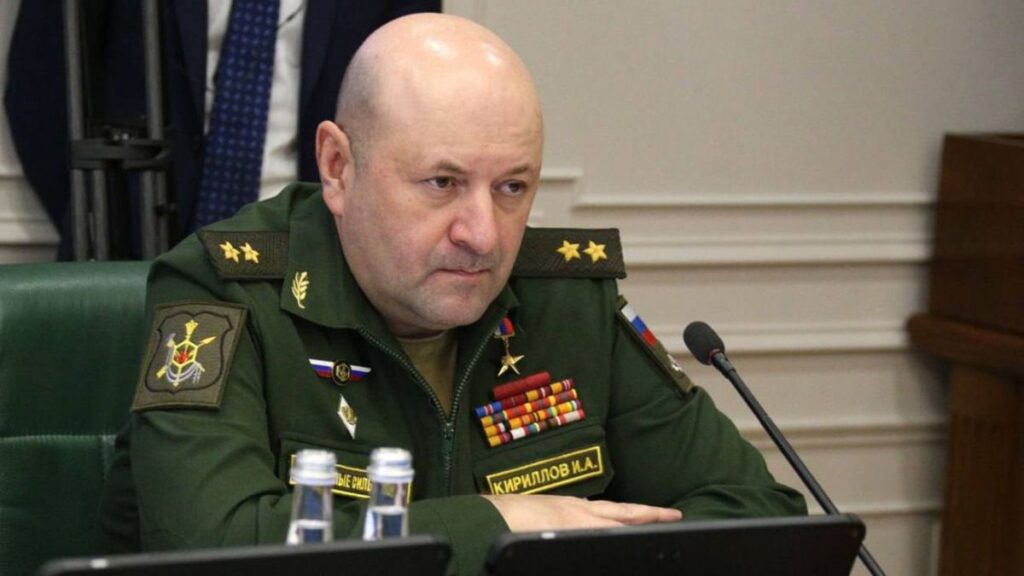Russian authorities announced on Wednesday morning the arrest of a 29-year-old Uzbek man for the assassination of Igor Kirillov, head of the Russian military’s chemical weapons forces.

According to reports from TASS, the suspect was allegedly recruited by Kyiv. Russian authorities stated that investigations conducted by the FSB, in cooperation with the Ministry of Internal Affairs and the Investigative Committee, led to the arrest of the suspect, born in 1995. The man is accused of detonating an improvised explosive device near a residential building on Ryazansky Prospekt in Moscow, resulting in the deaths of Lieutenant General Kirillov, born in 1970, and his aide, Major Polikarpov, born in 1983.

A 300-gram explosive device
The assassination of Kirillov with a scooter bomb placed outside a residential building in Moscow has drawn global attention. TASS reported that the bomb contained 300 grams of TNT, which could be concealed in the scooter’s handlebars or another discreet location. Experts explained that such an amount of explosives is sufficient to kill anyone within close range.
The use of a scooter was described by analysts as a clever choice, given their ubiquitous presence on Moscow’s streets, which would not have raised suspicion. Reports added that the precision of the attack demonstrated the hallmark tactics of Ukraine’s SBU, known for its daring and successful operations.
Questions remain about the location of the individuals who detonated the device. Analysts speculated that they would have needed visual contact, either through cameras or as close-range observers, to time the detonation accurately as Kirillov exited the building.
A broader context
CNN analysed the attack, suggesting it signalled Ukraine’s urgency to regain the initiative in the conflict. It noted that the assassination struck both the core of Russia’s military and a location near the capital. CNN described the incident as a blow to Russia’s enhanced domestic security apparatus while also highlighting Ukraine’s determination to act decisively before Donald Trump potentially returns to the White House, as Russia continues its advances on the eastern front.
Kirillov, as the head of Russia’s chemical weapons forces, was believed by Ukraine and its allies to have played a significant role in the war, particularly in the use of chemical agents such as CS gas. He was also seen as a key figure in Russia’s disinformation efforts, which are critical to maintaining domestic support for the war. In one of his last public appearances in November, Kirillov claimed that Ukraine’s incursion into the Kursk region of Russia aimed to seize the city’s nuclear power plant, reiterating Russia’s narrative that Ukraine intended to construct a dirty bomb.
Strategic implications
CNN noted that although Kirillov, like other Russian Defence Ministry officials, was not irreplaceable, his death was unlikely to shift Russia’s course regarding chemical weapons. The attack, however, carried two key messages. It warned the Russian military that its personnel are vulnerable no matter where they are, and it reminded the Russian public that not everything is going according to the Kremlin’s plan on the Ukrainian front.
Also read: Targeted explosion kills Russian nuclear protection chief in Moscow
Edited from: Proto Thema


